Before I start telling you about my recent trip to Taiwan, I’ll share a few anecdotes, posted without commentary:
The night before I left for Taiwan, I was at MSG (seeing the Allman Brothers reunion concert—wow! Incredible show) and in a private box. While the food and non-alcoholic drinks were all free, the box came with a $35 voucher for alcoholic drinks. My GF and I don’t drink, so we didn’t use ours. The bartender in the box approached us and said if we weren’t drinking, we should consider leaving our $35 vouchers for him as tips, despite the fact that we had not ordered any drinks or otherwise interacted with him at all. He then proceeded to repeatedly walk by us, remind us of this, and generally try to coerce us into giving him $70, making the overall experience much less pleasant.
The day after I arrived back from Taiwan, I was at Katz’s Deli. When you order your sandwich (which happens at a separate station from where you order things like french fries and drinks), there is a “meat cutter,” before you eat, before you pay, before you even receive your food, with a big tip jar and QR codes asking for tips via Venmo. The meat cutter kept insinuating that we should tip him. Confused by this, I googled it and learned that Katz’s apparently runs on the system that if you tip the meat cutter, you get a “good” sandwich, and if you don’t, you will get a “bad” one.
When I landed back in the USA (during a layover in SF that ended up being delayed because our destination airport, Newark, had been forced shut for hours due to staffing and equipment issues) after the flight home from Taipei, I texted my parents the following:
- Moment I knew I had left Taiwan and re-entered the United States 1: When, four hours into the flight, I was served a meal consisting of a gross-looking and tasting piece of bread filled with cheese and turkey.
- Moment I knew I had left Taiwan and re-entered the United States 2: When the decibel level at the airport was significantly louder than anything I experienced during my entire trip.
- Moment I knew I had left Taiwan and re-entered the United States 3: When the airport layout was completely inefficient, packed, slow, and didn’t make any sense.
- Moment I knew I had left Taiwan and re-entered the United States 4: When I entered the airport lounge and the people inside looked completely different than the people outside.
I’ve now been fortunate enough to travel to every East Asian country (with the exception of North Korea), and while each trip left me somewhat disillusioned with life in the West, returning home from Taiwan felt uniquely transgressive. Taiwan is the nicest and most pleasant place I’ve ever been. Said simply, it felt like a much richer and more advanced society than my own. Coming home made me feel sad about the state of my home.
The reason I visited Taiwan is sad and unusual. I had been meaning to visit for a long time, harbouring plans to bike around the island, though with no immediacy in mind. But with the inauguration of Trump, and after writing a blog post about my worries concerning Azerbaijan invading Armenia and thinking through the implications for Taiwan, I realized I was no longer confident that Taiwan would remain independent long enough for my eventual trip planning. So, I booked a trip leaving just a few weeks later.
Before going to Taiwan, I didn’t know an obsessive amount about the place. It held a special place in my heart because my favourite movie of all time, Yi Yi, is based in Taipei and from a Taiwanese director. From a distance, I was also very confused: this nation, supposedly in fierce conflict with China, actually had incredibly strong economic integration with the mainland (#1 trading partner), had a huge percentage of its citizens living and working there (estimated to peak at 10% before COVID), and saw seminal leaders in its strategic industries (like semiconductors) often leave to aid Chinese competitors. Meanwhile, many politicians seemed generally quite friendly and receptive to China. All of which was confusing and surprising, as this scenario is much different from most discussed conflicts where there is a lot more animosity between the parties.
In total, the trip was 7 days in Taiwan, 3 days in Hong Kong, 1 day in Shenzhen, and 1 day in Macau. I remember pitching my GF on Taiwan by saying, “There isn’t really anything specific to do there; we will mostly just eat and walk around aimlessly.” And that’s essentially what we did. Most days were spent going from one restaurant to another, often consuming 4-6 small meals a day.
I want to make a quick note on the food. The food in Taiwan was, by far, the best I’ve ever had. I don’t fully understand how it was so consistently good. What surprised me most was the sheer variety. It wasn’t like I was eating “Taiwanese food” and it was just 15 different kinds of dim sum or variations on pasta. I kept eating meal after meal, genuinely a 10/10 experience, that was entirely different from any meal I had eaten previously on the trip. Food I had also never heard of before. The food in HK and Shenzhen was also excellent, but in Taiwan, everything was incredible and so diverse. After it happened several times, I developed confidence that almost any restaurant I walked into in Taiwan, even if it was a stall at the side of the road with no Google Maps adulation, could be the best meal of my life.
I don’t fully understand what enables one country to have excellent food and so many others to fail to achieve this. It’s not like the food was overly complicated or expensive, either. While it’s perhaps a bit surprising that other countries haven’t matched Taiwan’s culinary heights (given larger populations, more diverse cultural inputs), it remains perplexing why others seemingly cannot imitate this level of quality. How can it be that everything, and I mean everything, can be excellent in Taiwan, regardless of price, while most food back home is unappetizing and often 2-5x the price? One thing that stands out is that many restaurants serve basically one dish only, allowing them to specialize intensely. My actual best guess to answer this puzzle (aside from the obvious like good culinary tradition and excellent local produce and supply lines), which I speak to later on in this post, is a people with great sense of taste and quality, actually caring, and most critically, a population where talented people are not sorted only into high-earning jobs, but take dignity in all sorts of work, like working in a restaurant.
Aside from eating, some activities I really enjoyed in Taiwan:
- Shrimping: indoor pools where you rent a rod for some period, filled with shrimp for you to catch and then BBQ yourself.
- Tea: going to tea houses, buying tea, looking at tea ware. The tea in Taiwan is excellent and the vibes at teahouses are wonderful. I also spent an entire day going to a ceramic village, where I visited 50+ stores filled with tea sets, only to eventually buy a tea set at the first ceramic store I visited in Taipei, because I actually preferred what turned out to be a Japanese-style teapot to a traditional Taiwanese one.
- Taiwanese baseball: complete with fun music and coordinated fan dancing.
I wanted to buy a teapot while I was in Taiwan and was surprised I couldn’t find any with a capacity much over 300ml—and even that size was incredibly hard to find, with almost all teapots holding less than 150ml. This seemed impractical to me. How am I supposed to make a proper cup of tea, or serve tea for guests? Only later did I learn that traditional Chinese tea is served in very small teapots because it’s considered the only way to ensure adequate temperature control for the highest quality steep. I’ve long been interested in why British tea, despite being such a national obsession, is generally considered low quality and hasn’t seen much innovation, while many other nations have dramatically improved their tea or coffee cultures . I thought about this a lot during the trip because it’s abundantly clear just how much Taiwanese people care about the quality of their tea. More notably, this became a major theme of the entire trip: Taiwanese people care about quality, period, in a way that feels completely missing in my home culture.
This sense of care extended beyond food and drink. I once wrote a blog post about the difference between cities that build proper wayfinding systems in their subways (where each entrance/exit is numbered, allowing Google Maps and signs to point you to the most efficient spot with ease) and those that don’t, as representing societies that are complacent versus those that actually care to improve their constituents’ lives. It’s not just that Taiwan has this system; it has a million other little things where it’s very clear people were actually invested in improving daily life. It feels like the entirety of Taiwan treats itself as a company with product managers trying to optimize every experience for excellence. There were also a bunch of random innovations I had never seen before: bathrooms with lighted maps showing which stalls were occupied, umbrella rental stands (and dryers), the ability to check luggage for flights at a subway station, stores providing recycled bags (left by previous customers) instead of just new ones…
But the sense of helpfulness and trust went beyond efficient systems; it manifested in personal interactions too. When we went shrimping, we clearly had no idea what we were doing. Immediately, other patrons were incredibly helpful, showing us techniques to actually land a shrimp, and then near the end, seeing our paltry catch, decided to give us some of their shrimp to cook. Later, seeing our confusion at the BBQ station, someone working there simply took it upon himself to cook the shrimp perfectly for us. Then, seemingly shocked that we didn’t know the best way to eat them (apparently involving wasabi, soy sauce, and a specific way of breaking them off the skewer), he patiently taught us that too. We tried to tip him for all the time and help, but he flat-out refused to accept it.
On another occasion, we found ourselves at a fantastic restaurant that turned out to be cash-only. When we realized we didn’t have enough cash, without hesitation, the restaurateurs gladly told us not to worry about it and let us have our food without paying the full amount. When we managed to get more cash later and went back to pay the difference, they initially didn’t even want to accept it, seemingly content with the trust they’d extended.
Of course, there are all the usual things people talk about: the noticeable lack of visible disorder or homelessness on the streets, the absence of harassment of any kind, the excellent public transit, the utterly casual way people leave belongings (bikes, bags, purchases) unattended, seemingly knowing they won’t be stolen or disturbed. But there is also something more. It seemed that I was part of a collective, that we were all in this together. They wanted to have nice things, and they had them. That there was a will to improve and make life wonderful in all ways, for all people.
I had previously spent extensive time in Singapore because I found their government fascinating and wanted to better understand how such a system came to be and how its society functioned in practice. While I found many things in Singapore admirable, I ultimately would not want to live there. In contrast, Taiwan, feels like a great place to live and flourish.
I found myself reflecting on experiences like these a lot, especially when thinking about the often transactional, adversarial, nature of many interactions back home – and it goes beyond just the obvious examples like the pervasive tip culture illustrated earlier. It felt like a fundamentally different default assumption about relating to others. This feeling contrasted sharply with reflections I’ve had about my own society.
In 2019, I read The Path to Power by Robert Caro about LBJ, which completely shattered me. It remains the most significant book I’ve ever read. It helped crystallize an insight that depressed me: that many leading politicians in the US (as well as others in significant positions of power) are not guided by values or ideals trying to improve things, but rather sociopaths obsessed with power. I find that being in the US often doesn’t feel like being part of a community. If people act abhorrently, that’s typically seen as their problem (or, even worse, your problem); it’s not treated as a community issue worth fixing. If something is dysfunctional or suboptimal, but someone benefits from it, it’s unlikely to change. Politicians often seem to be elected not primarily to improve things, but so they (or their supporters) can feel good and enrich themselves. We are not in this together. We are not part of a collective. We will not make things better. There is some level of decency and collectiveness in Taiwan that feels palpable.
I obviously have a certain philosophical bent: I see the world through a broadly consequentialist lens. I volunteer my time to help lead YIMBY and effective altruist organizations. So it was striking to be somewhere where the outcomes I care about—things working, people cooperating, a sense of shared responsibility—felt baked into the culture, not something requiring constant advocacy, but assumed. A lot of Westerners get curious about Buddhism as a personal path, but almost no one talks about Confucianism. To be candid, I know little about Confucianism and am very curious to learn more: does it actually contribute to what makes Taiwan so exceptional, and perhaps more generally, what makes East Asia feel so functional or pleasant? Does reading Confucian texts today actually matter, or, to the extent it contributes to the current situation, is that simply the result of its historical influence playing out over hundreds or thousands of years? How useful is it for individual wisdom and growth, or is it primarily just a system of social order? If you have any thoughts on Confucianism, or recommendations of what to read to better understand this, please share.
Some other observations from the trip:
- Mainland China (Shenzhen): Something I’ve always been quite surprised by is the zealous belief, shared by many for my entire adult life, that the Chinese economy is somehow fake and that the entire country is going to collapse any day now. Under no circumstances can China be praised, or even talked about neutrally. It’s like people decided China is the enemy and anything but criticism is seen as insufficiently supportive of their side. Taiwan is rich. Hong Kong is rich. Singapore is rich. East Asians are exceptionally successful in practically every Western nation. The CCP, certainly since Deng, has been hypercapitalist and leverages markets. I hadn’t visited mainland China since 2017, and it felt noticeably richer and nicer this time. Shenzhen felt not just first-world, but rich. It was green, quiet, well-organized, and filled with nice buildings. It was also inexpensive. Subway cars had sections with different temperatures, so you could choose your preferred level of AC. I saw a street restaurant that used plastic bowls but placed a fresh sheet of aluminum foil inside each one, allowing them to reuse the bowls without needing extensive washing facilities on-site. I had the best gelato of my life in Shenzhen, from some random Chinese gelato company, so the high quality of food isn’t restricted just to traditional Chinese cuisine. I also visited a neighbourhood in Shenzhen filled with oil painters mostly making replica paintings which I learned is the main spot for middle eastern bigwigs to get paintings of themselves done) to hang in their palaces.
- Hong Kong: They drive on the left, which implies they should also pass on the right and stand on the left on escalators. And while some signage supports this, there seemed to be complete uncertainty among people as to what they should actually do, leading to a kind of low-level chaos. To me, this felt like a decent summary of HK in 2025: unsure if they should be standing on the left or the right. While they seemingly used to default to the left, that norm seems to be rapidly evolving. On another note, there are many Mao portraits visible around Hong Kong and mainland China. This post isn’t intended to be about the CCP, but I will say I find this quite telling. There’s value in forcing acceptance of the biggest and most obvious lie; if you can make people accept that false reality, it demonstrates who truly holds control and what is expected of you elsewhere.
- Macau: Macau was surprisingly unpleasant, but it is interesting how invested the Chinese government seems to be in keeping it superficially Portuguese. This isn’t because it actually is Portuguese in any meaningful contemporary way, or because there are necessarily redeeming qualities to this facade, but I suspect because it enables China to maintain the fiction that it is more respectful of historical non-CCP governance models. Although, I do find it funny that Macau retains things which look Portuguese, while Hong Kong, in no significant way, looks British. This is despite Macau being far from a Portuguese success while Hong Kong was an astounding British one. Development is not about the design of streets or squares, but about markets, institutions and ideas.
- Technical/Censorship Note: This was actually a complete coincidence, as using a foreign SIM card, I shouldn’t have experienced any internet censorship or banned apps while in Taiwan, HK, Macau, or mainland China. But I foolishly bought an eSIM that routed traffic through Macau, which meant all AI applications other than the Chinese model DeepSeek were blocked on my phone (except when using Wi-Fi in Taiwan). It’s amazing how much I already rely on AI for travel and learning. Since I was obsessively trying to learn about China/Taiwan history, culture, and the current situation, almost every complex question I posed to DeepSeek would trigger a censorship refusal. The worst part was that the censorship applied not only to questions you might expect them to censor, but also seemingly to many other queries containing words that could be problematic if used in a different context.
The intention of this post isn’t primarily political, and I do not want to prognosticate too deeply about the potential for conflict between Taiwan and China. Rather, I will share a few superficial observations related to identity and governance. The most significant cultural site in Taiwan is arguably the National Palace Museum. But, you see, the National Palace Museum in Taipei is fundamentally not a museum about Taiwan qua Taiwan; it is a museum showcasing the history and treasures of the Chinese nation — sadly, it is actually the most significant Chinese heritage museum anywhere, as most Chinese artifacts were destroyed during the cultural revolution. When you see Taiwan through the lens presented by its most famous museum (and reflecting the historical stance of the ROC), you don’t see a distinct, independent nation asserting its unique identity, but rather a polity positioning itself as the legitimate steward of historical China. Granted, this reflects the official KMT position historically and shouldn’t be a surprise, but I want to stress that for almost all of the Republic of China’s history on Taiwan, the stated goal has been eventual reunification with China, alongside an acknowledgement that they are part of the same nation. I am generally wary of independence movements and will acknowledge that the legal claims underpinning Taiwanese independence appear quite weak, and more critically, the ROC government itself has historically not pursued formal independence as its primary strategy. I think there is an alternative history where Taiwan acted with conviction and made independence a reality, but that is not the world we live in and I think the conviction is not there to truly make something so difficult and audacious to happen. So, despite being now a devoted fanboy of Taiwan, my political leanings don’t align with the zealous Taiwan supporters in the West (who I don’t think are speaking from Taiwan’s perspective at all, but rather reflecting an in-group/out-group anti-CCP stance). In short, based on these observations, I find it difficult to envision an independent Taiwan enduring, nor do I think the current status quo can persist indefinitely. I also don’t view this potential outcome as inherently spiritually wrong, given the historical context. I hope for the best, but fear something sub-optimal and unpleasant. I think a hot war between China and Taiwan is extremely unlikely.
Another mystery to me is why Taiwan remains so devoid of tourists. In general, I find East Asian nations undertravelled relative to their pleasantness, but Taiwan is so affordable, easy to navigate, genuinely nice, and the origin of things famous worldwide like bubble tea, it’s surprising how few tourists seem to visit. It should be much higher on many more people’s lists. There is a nice feeling when you can go to all the places that notionally would be touristy, and find no real catering to tourists at all. My main speculation is that most travel decisions are driven by momentum (people go where others recommend), so small initial differences in popularity really compound over time; being part of a travel loop (ie its part of a larger Euro/SE Asia/SA trip); or having some significant attraction people can talk about as the reason to visit. Perhaps most significantly, Taiwan’s ambiguous political status means it often gets discounted because many people primarily think of the world in terms of clearly defined, independent countries, leading it to be undervalued as a destination.
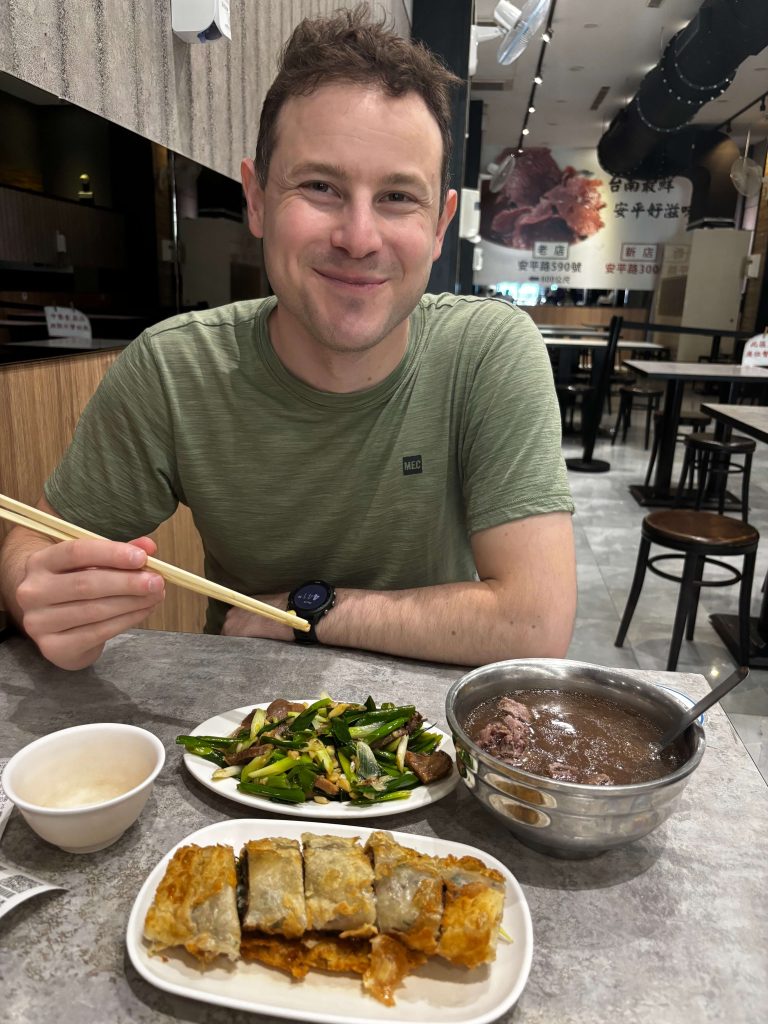
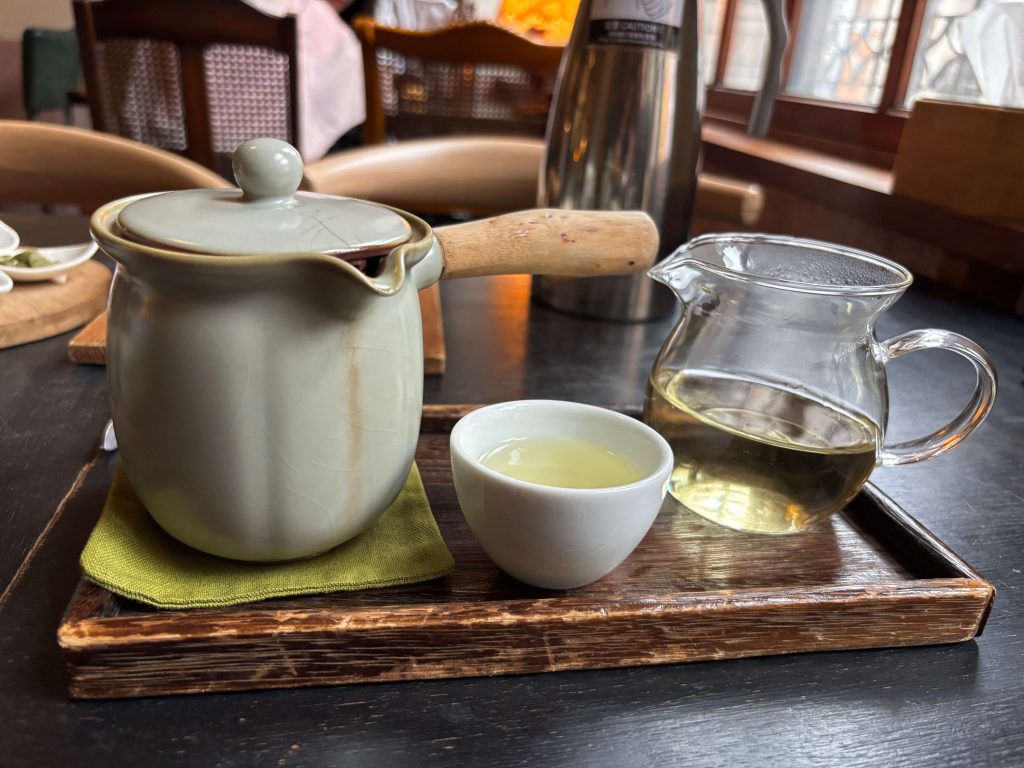
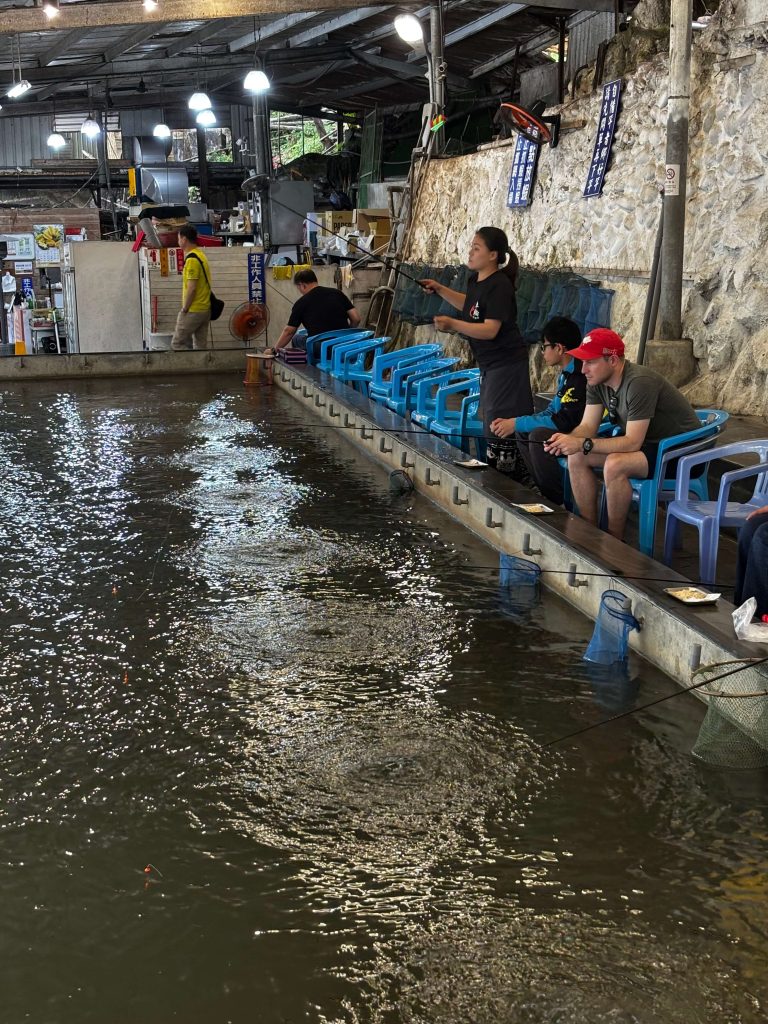
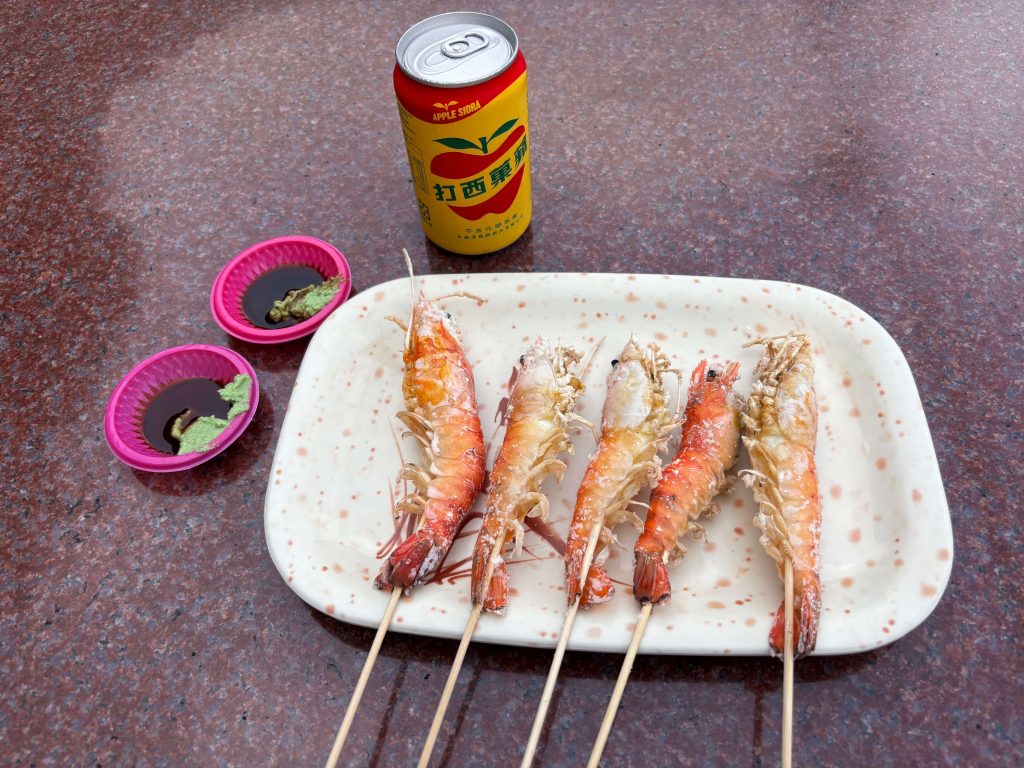
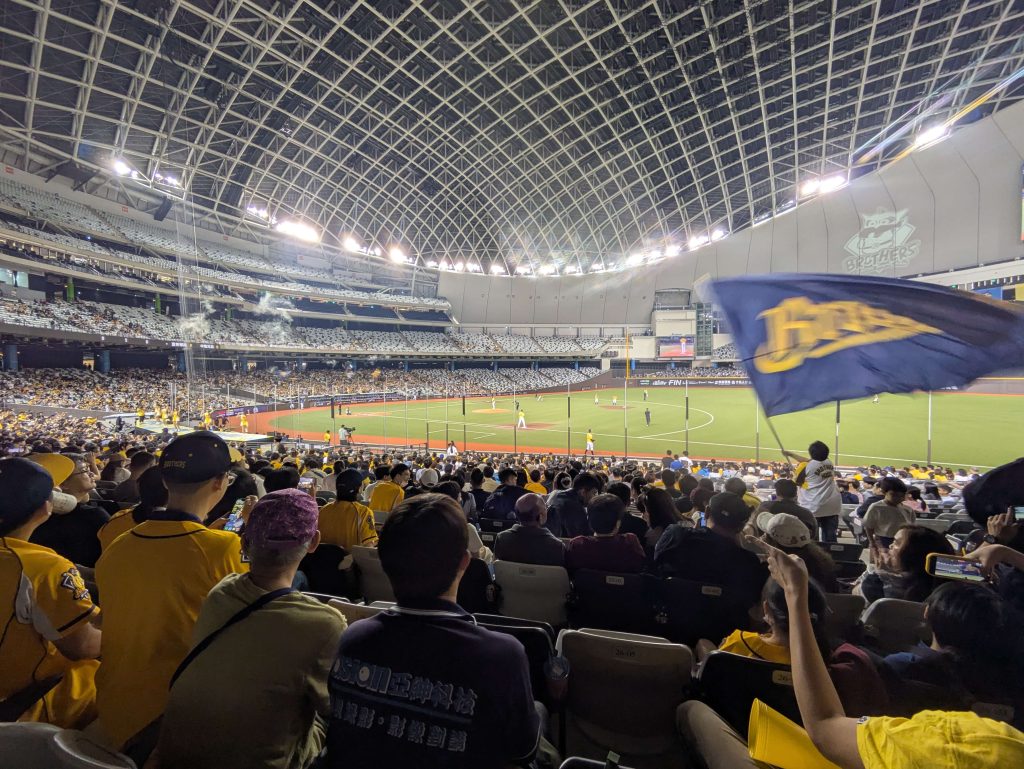
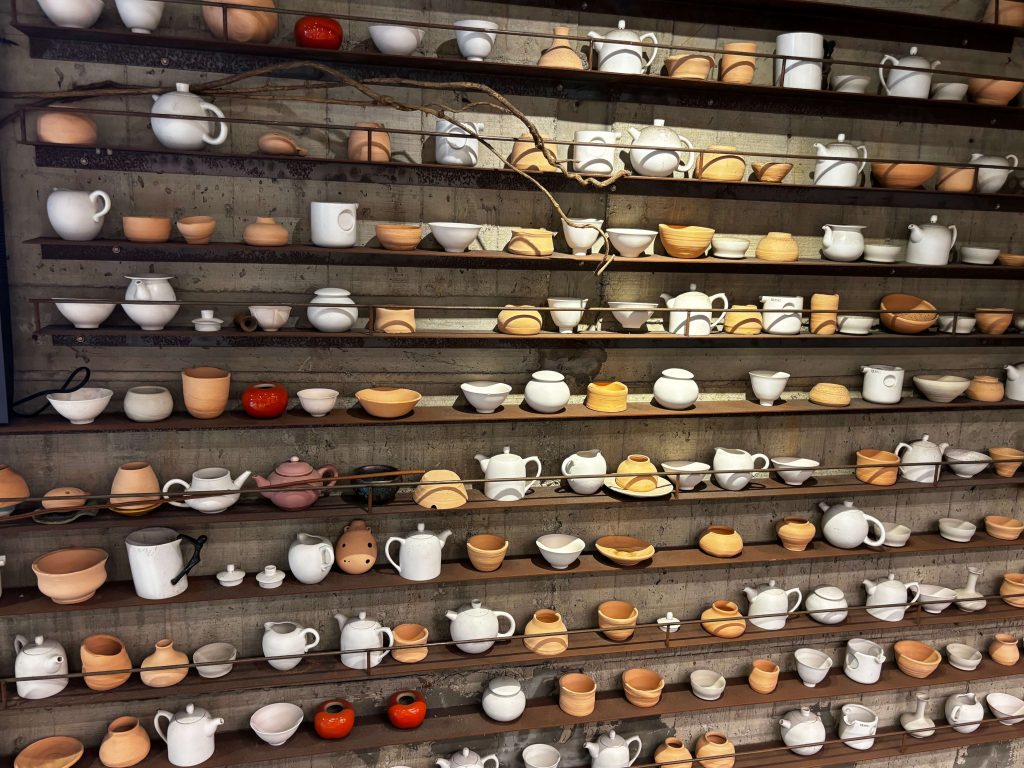
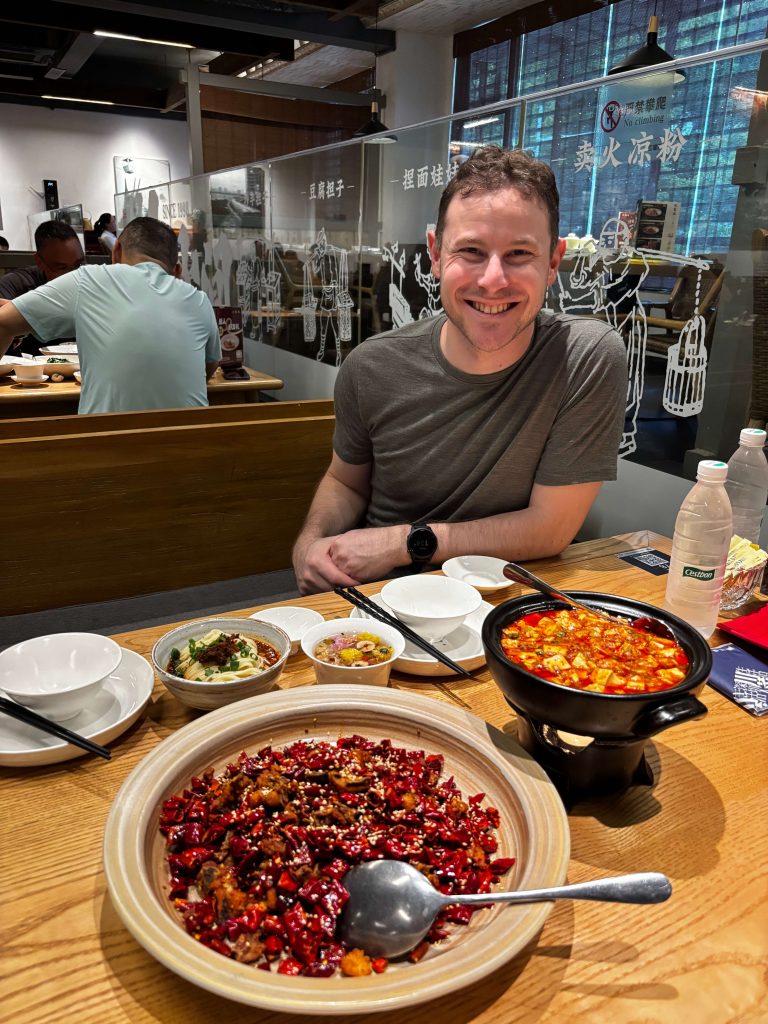
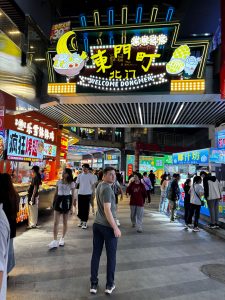
Did I see you at the ACX Meetup in Taipei? I was actually just in Taiwan myself, and a lot of my impressions were similar.
Particularly the prosocial culture, I was also wondering myself whether this was the true Confucian spirit, or whether this was due to historical and ongoing Japanese cultural influence.
Regarding the food, there’s an anecdote from a Chinese chef relayed by Fuchsia Dunlop that the person who most influenced the culinary world was Chaiman Mao, because he sent all the chefs down to the countryside during the Cultural Revolution. This is my current guess for why the food in Taiwan (and Hong Kong) is always consistently good, while the mainland is more hit or miss.
The other thing is, I assume you were exclusively in Taipei. The north-south divide in politics probably comes from the fact that the north is much more economically integrated with the mainland. My understanding is that this was intentionally encouraged as a strategy to discourage hot invasion, but at the same time economic integration encourages further integration.
Wonderful post. When I visited Taiwan in 2023, it seemed to me to be a mix of Japanese and Chinese culture. But Chinese culture is itself a moving target. On my first visits to the mainland, it seemed almost the opposite of Japan–rude people in contrast to Japan’s extremely polite population. Very dirty in contrast to Japan’s cleanliness.
On recent visits, that’s changed to a considerable extent. Especially in the wealthier big cities, mainland China is becoming a bit more like Japan, which means it’s also becoming a bit more like Taiwan. (Unfortunately, the mainland is stuck with its awful city planning.)
A recent visitor to Shenzhen was surprised that people would leave purses and iPhones on the table in a restaurant, while going out to their car–not fearing they’d be stolen. That’s totally unlike the China I visited in the 1990s, but seems a lot like the Taiwan that you describe.
Under Deng, China basically adopted Taiwan’s economic system. Now the mainland seems to be adopting China’s culture. Who’s taking over whom?